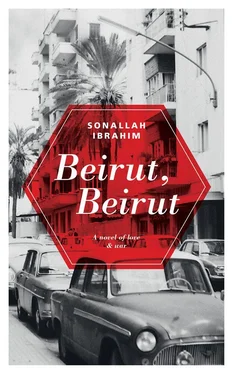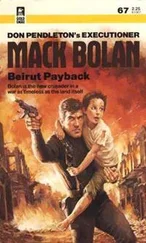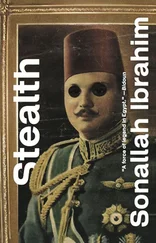Title card:
Su’ad Salih, age 42, mother of five sons.
“When the siege began, I had 10 kilograms of flour in my house, so I made dough out of it, baked it, and sent the bread to the fighters. I used to make tea and coffee for them at night. Then the electricity was cut, so we would make candles for the hospital. We got the wax from a nearby warehouse. My son would bring it and we would place it over the fire to melt it, then we would pour it into meat and sardine tins, and put a wick in it. After it hardened, we would cut the can and take the candle out. We got to be very good at it, and started taking X-ray images, rolling them up and tying them in place, and then we would pour the wax in. After pulling it apart, we would get a beautiful, slender candle…”
Title card:
Fatima Iwad, age 22, nurse.
“Ever since the siege began, I was working night and day to secure food and water for the wounded. Many of them were dying for lack of medicine. We had nothing to sterilize wounds with except water and salt. Ten days before the camp fell, we were waiting, one day after the next, for the arrival of the Red Cross to evacuate the wounded, but it only came three days later — after the camp had been cut off from the world for forty-two days… Around eighty wounded were evacuated, and the next day 150, and on the third day 750, along with several nursing infants suffering from dehydration.
“The night the camp fell, we were told that there were guarantees from the Red Cross and the Arab Security Forces to transport without objection those people living in the camp who surrendered. The next morning, we waited from 9.30 am, at the place where it was agreed that the Red Cross would be at 9 am. But during that time, the bombardment grew insanely intense, and the isolationists entered the camp. We were told that Red Cross trucks were in Dekwane to transport the wounded and civilians, so a group of us — nurses, along with several inhabitants — headed that way. But a barricade manned by Phalangists stood in our way: they searched us, while heaping curses on us. At the next barricade, the isolationists took the male nurses, tortured them, and killed them before our eyes…”
Title card:
Fatin Badran, age 23.
“I joined other female volunteers to establish a medical center in the fortified area, under the guidance of the doctors of Tel Zaatar. The night the fortified area fell into the hands of the isolationists, I was with my grandmother in the shelter. All the families in the shelter had Lebanese citizenship except for me and my grandmother. We became more afraid.
“The isolationists entered the district and began firing bullets through the windows and doors into the shelters that were crowded with women, children and old men, since the young men had joined the Tel Zaatar fighters. Then they moved us to the entranceway of another building, without knowing we were Palestinians. A little later, the isolationists brought people who recognized their friends who were among us, so they took them and left. The only people who remained were me, my neighbor and another neighbor woman who was called Wadad Qusur. At this point, my fear grew more intense, so she began reassuring me and telling me that she had friends who would come and take her, and that she would take us with her. But bombs fell on us and we got separated. We walked until we met a Palestinian family carrying Lebanese identity cards, and we went with them in a car. The driver asked us if we were Muslims or Christians, saying, ‘If you’re Muslims, then you’ll have to get out at the Christian neighborhood of Sin el Fil.’ But I persuaded him to take us to the edge of the Muslim neighborhood of Furn el Chebbak.”
Title card:
Haya Feriha, age 20.
“In our free time, we would prepare the arsenals for the fighters’ weapons, and I took part in an assault operation along with the martyred Samira Badran on the front lines in Hazmiye. We returned safely after destroying an armored car, although one of our men was hit. We let them know that we wanted to be with the heavy artillery (the anti-tank guns) on Tella al-Mir, and they agreed, but when I let them know that I wanted to be trained in how to use it, the fighters laughed since they were sure that women couldn’t do jobs like that — they could only talk about it. But I was determined to prove to them I could. I really trained, and began by firing fifteen rockets at the opposing position, and I grew more devoted to the revolution. They showed they were prepared to train a squadron of female fighters.
“When the camp fell, we resisted to the last, and finally I destroyed my weapon, according to instructions, and went with my family to Dekwane…”
Title card:
Amina Fariha, age 35.
“When the water supply was cut off from the camp, around fifteen women went to the well, and only six of us came back. A cup of water was worth a cup of blood…”
Title card:
Shaykha Ahmad Shahrour, age 32, mother of two.
‘‘We were keeping ourselves hidden from one house to the next, until we reached the well. There were Phalangist men there, occupying the heights nearby that overlooked the well. They were shouting at us, ‘Two at a time,’ and that’s when the shooting began. Sometimes we would stay out all night long but come back with no water, and the children would start crying and yelling, because they needed a drop of water instead of milk.
‘‘My little boy, one year old, was sick, so I took him to a doctor with the Red Crescent, but he said, ‘We don’t have any medicine.’ My son’s temperature went up to 40 degrees Celsius, and he became paralyzed in one leg. My husband was hit in the stomach and his legs. Before, I would tell him, ‘Leave this place, and secure our future for us,’ but he would tell me, ‘I won’t leave Tel Zaatar as long as it has a single stone left.’ He kept his promise and stayed there until the last moment, and to this day, I don’t know if he is alive or dead.’’
Title card:
Affar Muhammad, age 32, mother of seven children, three of whom are still alive.
“I went to the Red Crescent hospital on the main street of the camp, to see the wounded. Before I could get there, a bomb fell on the door of the shelter while my children were there, including my oldest daughter Amal, age eleven. She was martyred along with six children her age. After that, my health declined, and I was six months pregnant. The children were hungry and some died from thirst. Mothers nursed their children on the water from boiled lentils, and fever spread among the children. Some of them died of it, and others became dehydrated. By the time I went into labor, the bombing had grown intense, and my daughter was born on the stairs. I couldn’t sleep for a single moment.”
Title card:
Khazna Muhammad Salih, age 29.
‘‘… On the day the camp fell, I gave away the weapon I was carrying after they assured us that there were guarantees from the Red Cross and Arab Security Forces. I headed toward Dekwane along with several other women. At a roadblock near Studio Fawzi, a gunman tried to rip my clothes off, but I gave him all the money I owned. At the Hotel School, I saw a woman who was with the isolationists: she was wearing black and beating a boy around fifteen years old on the head and face with a pistol. Then she took him to a trash yard and while cursing the Palestinians, she killed him. I found my mother and brothers in the school. My mother tried to get a car to get us out of there, and my brothers were shaking with fear and terror. She paid a sum of money to the driver and we got in the car. I saw the isolationists tie a rope around the neck of a young man. They hanged him and then drove a car over his dead body. His flesh stuck to the ground. They did all that in front of his injured wife and his small children, who couldn’t utter a word.
Читать дальше












